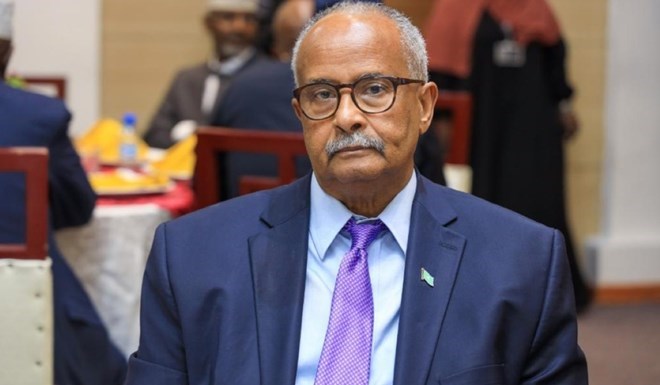
By LUKE ANAMI
Sunday June 23, 2024

Somalia held a consultative road map meeting last week, which would see its legal structures aligned to those of the East African Community (EAC) to enable it to benefit from the regional bloc.
The one-week meeting, attended by EAC partner state delegates, was aimed at developing a comprehensive roadmap for Somalia’s integration into the EAC, marking a significant step towards bolstering regional cooperation and economic integration.
In the meeting held in Nairobi from June 17 to 20 and chaired by South Sudan’s Under-secretary in the Ministry of East African Affairs Beny Gideon Mabor, Somalia was taken through the four pillars of the EAC, to enable it to align them with its constitution and national laws.
The EAC is made up of four pillars, Customs Union, Common Market, Monetary Union and Political Federation.
The Somalia delegation was led by Dr Abdusalam H Omer, Somalia’s Presidential Special Envoy to the EAC.
Somalia became a full member of the EAC in March 2024, after officially depositing her instruments of ratification of the Treaty of Accession with the EAC Secretary-General.
“Today’s meeting signifies a critical milestone in this journey, aligning Somalia’s national processes with regional frameworks to ensure comprehensive integration,” Veronica Nduva, EAC Secretary-General, said at the opening ceremony.
Somalia was taken through the workings of the Customs Union and Common Market.
Mogadishu had sent a 25-strong delegation of government officials, who were taken through the functions of the EAC decision making organs, including the Summit, Council of Ministers, high level task force, and organs of the EAC and how they operate.
The roadmap outlines essential activities categorised into national and Community-oriented initiatives. These include aligning Somalia’s legal framework with established regional standards that would ensure its participation in EAC programmes and activities.
Once Somalia is fully integrated into the EAC, it will enjoy free movement of goods and persons within the region. Its goods will no longer attract duty within the EAC, among other benefits.
“Somalia has assured us that it aims to play an active role in the growth and prosperity of the East African region and is committed to participating in initiatives that promote sustainable development, job creation and improved living standards for EAC citizens,” said Mr Mabor.
Dr Omer expressed optimism about the collaborative efforts of all stakeholders in shaping a roadmap that will ensure the effective integration of Somalia into the bloc.
“We are dedicated to working closely with all stakeholders towards a brighter and more prosperous future for all EAC member states and their citizens,” he said.
Somalia is poised to elect nine members to the East African Legislative Assembly and appoint a judge to the First Instance Division of the East African Court of Justice.
further solidifying its commitment to the regional integration process.
Somalia’s EAC integration road map is far ahead of the Democratic Republic of Congo which joined two years earlier than Somalia.